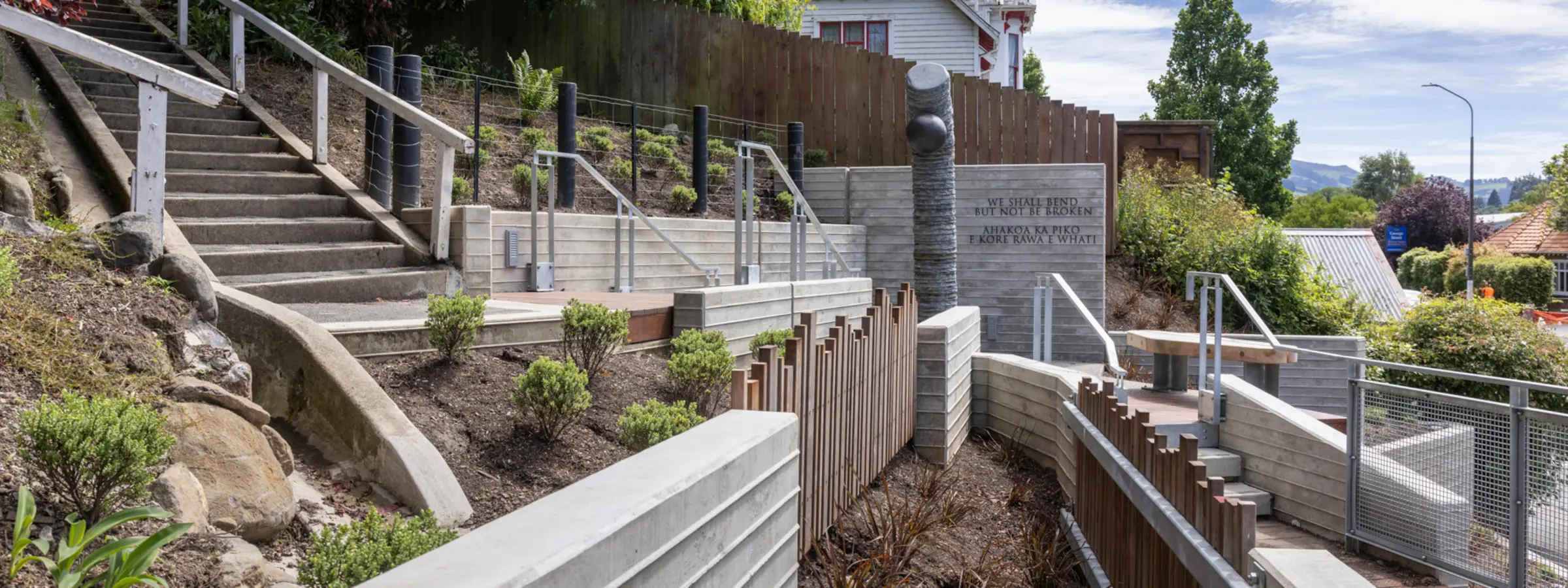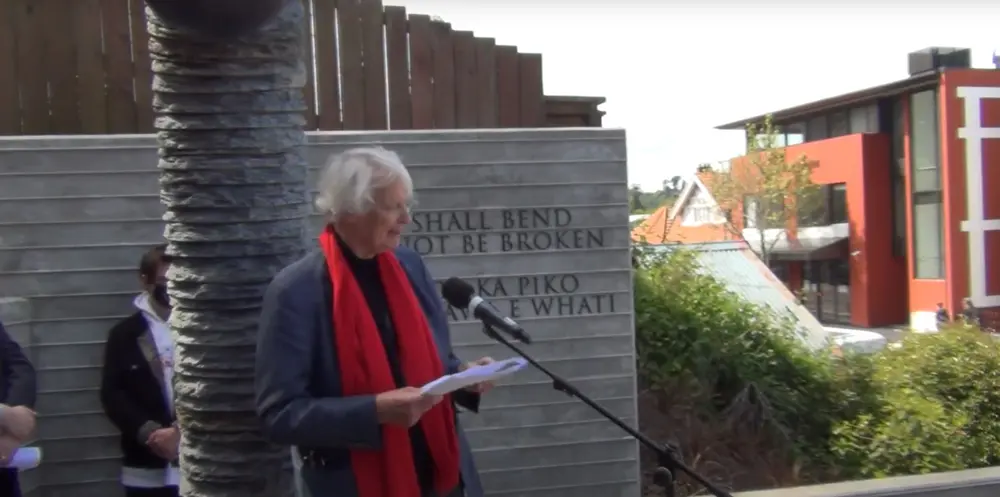News
Conscientious objectors commemorated
The opening of a national memorial in Dunedin for conscientious objectors has been held up as a celebration of courage and prompted an apology from Deputy Prime Minister Grant Robertson.
The memorial includes an abstract depiction of Field Punishment No1, for which men were tied to posts and had their hands tightly bound behind their backs for hours at a time during World War 1.
Opening the Archibald Baxter Peace Garden yesterday, Mr Robertson said the punishment was a gross and inhumane form of state-sponsored torture.
‘‘I want to say sorry ...it was wrong.’’
Mr Robertson said the apology was personal, rather than officially from the Government, and he acknowledged the suffering of conscientious objectors.
It was appreciated as a significant moment by Archibald Baxter Memorial Trust chairman Prof Kevin Clements.
The memorial was complementary to the Otago Peninsula Fallen Soldiers' Memorial and honoured ‘‘a different kind of courage, to say no to war’’, Prof Clements said.
Prominent pacifist Archibald Baxter and 13 other objectors were forced aboard a troopship bound for Britain in 1917 and then the front line.
They were subjected to cruelty, as well as moments of humanity, Prof Clements said.
He told the gathering at yesterday’s ceremony the memorial was 10 years in the making and the site at the corner of George and Albany Sts was accepted after two false starts.
Several speakers, including Mr Robertson, referred to the 1881 invasion of Parihaka, which happened the same year Mr Baxter was born.
The government of the day chose to crush the peaceful resistance at Parihaka.
‘‘It’s incredibly important that we acknowledge all of our history when it comes to war, peace and conflict and in New Zealand we have a lot of memorials to those who fought and that’s the right thing,’’ Mr Robertson said.
‘‘But it’s very timely to have one to those who showed the courage of their convictions to be conscientious objectors.’’
Asked about Covid-19 vaccine mandates, which essentially require sectors of the workforce to be vaccinated, Mr Robertson said this was driven by public health needs.
Some people believed deeply they should not receive the vaccine, but this was a different realm from principled pacifism, he said.
Baxter family representative Katherine Baxter said it had been a long-awaited day.
The memorial and peace garden would be a lovely space in the middle of the bustle of Dunedin, she said.
Dunedin Mayor Aaron Hawkins was bemused that the memorial project had faced resistance 100 years after pacifists endured suffering in World War 1.
However, the trust’s painful journey to drive the project to completion bore no comparison to the suffering endured by the conscientious objectors themselves.
The design of the memorial was led by Paddy Baxter and the sculpture was by Shane Woolridge.



